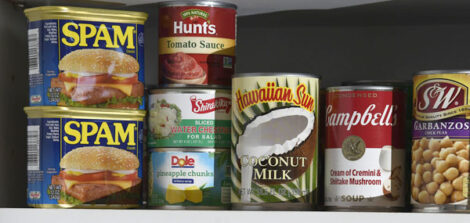County tax surcharge moves closer to reality
Revenues would go toward infrastructure for housing projects
Maui County is one step closer to establishing a half-percent surcharge to the state general excise tax that could impact the cost of everyday goods and services.
The council’s Budget, Finance and Economic Development Committee voted unanimously Tuesday to recommend approval of the measure, which would add a 0.5 percent surcharge to the state’s 4 percent GET, which is like a sales tax that is charged when residents buy products ranging from groceries to even a haircut. The extra revenue, which is estimated at around $80 million a year for the county, would be allotted to housing infrastructure such as sewer, water systems and even safety measures for streets.
Next, the council will hold a public hearing on the bill at 6 p.m. on July 6. First reading of the bill before the full council will be at 9 a.m. on July 7.
Committee Chairwoman Yuki Lei Sugimura has said that there is an Aug. 1 deadline for the council to pass the bill if the charge is to go into effect on Jan. 1.
At the committee meeting Tuesday, Council Member Tasha Kama proposed and won unanimous support for an amendment to have 20 percent of the revenues generated by the surcharge go toward housing infrastructure for the state Department of Hawaiian Home Lands, which helped sway some council members in favor of the surcharge.
Kama said that many homeless people in the state are Native Hawaiians and that as of March, about 28,000 Hawaiians were still waiting for their land awards.
Council Chairwoman Alice Lee asked if the amendment could allow for “up to 20 percent” of the surcharge revenues for DHHL instead. Although she said she supports DHHL projects, she was concerned about what would happen if the funds were not spent in time. She also noted the $600 million in state funds already set aside by state lawmakers in 2022 to help those on the DHHL waiting list.
But Council Member Tamara Paltin supported Kama’s original proposal, noting that the DHHL has many Maui projects, including in her district of Lahaina, that could use extra funds for infrastructure. Paltin said the $600 million from the Legislature is intended to cover the entire state, and with the high cost of infrastructure, the allocation “doesn’t go that far.”
Paltin, who previously expressed concerns about tacking on the surcharge, describing it as a regressive tax, wasn’t sure how she would vote on the bill Tuesday but called Kama’s amendment a “game changer” for her.
The DHHL proposal was also a plus for Council Member Shane Sinenci, who said he supported recommending the bill for passage, but “with reservations.” He noted the “additional taxes on our electorate” and also referenced the medical professionals who have come out to testify about how the state charges the GET on medical services, making it harder for them financially.
Doctors have expressed during committee meetings how burdensome it is, especially with the GET on Medicare and Medicaid, for which doctors cannot pass on the additional tax to patients.
But Sinenci pointed to Kama’s amendment as one of the bright sides, along with expected tax credits from the state for low-income families.
Council Member Tom Cook said the revenues from the surcharge could be spent on things such as water storage tanks that could be easily established in various communities.
“I don’t think it’s going to be a problem spending (the) money,” he said.
After the unanimous vote, Lee thanked the council members, noting how she and Maui County Finance Director Scott Teruya lobbied the Legislature this session to allow Maui County to enact a surcharge.
The bill passed by state lawmakers and signed into law by Gov. Josh Green allows the county to establish a surcharge. Each of the counties previously had the opportunity to adopt the surcharge, but in 2019, Maui County opted out of the possibility.
Honolulu County was the first to adopt a surcharge. Kauai and Hawaii island also adopted a surcharge.
Maui County officials said the surcharge could have brought in around $283 million in added income over the past four years if it had been established.
“This was a big day for the county,” Lee said after the meeting. “This was our absolutely last opportunity to establish this GET surcharge.”
When asked if it would help speed up affordable housing, Lee said the funding could help with things such as a new Central Maui Wastewater Treatment plant that housing developments need.
Lee said revenues from the surcharge could go to water and sewer projects rather than increasing rates for the public to fund those projects. She said it could also help eliminate the county’s debts, including reducing the number of projects that rely on bonds for its funding.
Testifiers during the committee meetings raised concerns that costs from the surcharge would add up and be too much for residents, especially those with limited incomes.
Lee said that for every $1,000 spent, a person would pay an additional $5 with the surcharge.
Teruya said earlier this month that if the surcharge began Jan. 1, the county could see around $40 million generated in the last part of fiscal year 2024.
* Staff Writer Melissa Tanji can be reached at mtanji@mauinews.com.
- Maui County is one step closer to adding a surcharge to the state general excise tax, which could impact the cost of canned goods and other everyday products and services. A public hearing will be held on the proposed surcharge at 6 p.m. on July 6. The Maui News / MATTHEW THAYER photos
- The surcharge on the state general excise tax could also impact the cost of restaurant meals. This plate was served at the Lahaina restaurant Frida’s before it closed in April.






